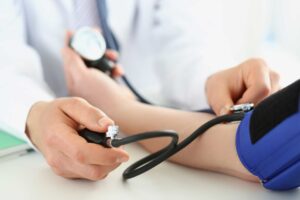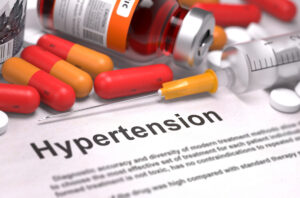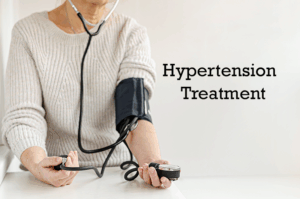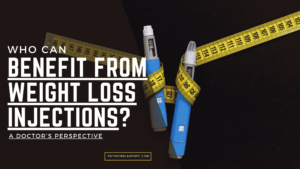At Raymond Lau Family Medicine PC, located in New York City, we recognize that managing Stage 1 Hypertension is a critical step in preventing long-term complications such as heart disease, kidney damage, and stroke. With high blood pressure affecting millions of adults globally, selecting the best medication for Stage 1 Hypertension requires a personalized, evidence-based approach tailored to your overall health, age, lifestyle, and any coexisting conditions.
Understanding Stage 1 Hypertension
Stage 1 Hypertension is defined by a systolic blood pressure between 130-139 mm Hg or a diastolic pressure between 80-89 mm Hg. Although it may appear mild, untreated Stage 1 Hypertension can lead to serious cardiovascular complications over time.
At this stage, lifestyle modifications are typically the first line of treatment. However, for patients with higher cardiovascular risk factors, antihypertensive medications are often prescribed in conjunction with lifestyle changes.
First-Line Medications for Stage 1 Hypertension
Thiazide Diuretics (Water Pills)
Common Drugs: Hydrochlorothiazide, Chlorthalidone
Thiazide diuretics are often the first-line choice due to their proven effectiveness in lowering blood pressure and reducing cardiovascular risk. These medications help the body eliminate excess sodium and water, reducing blood volume and easing pressure on artery walls.
Pros:
-
Cost-effective
-
Long-term cardiovascular protection
Cons:
-
Can affect potassium levels
-
May increase uric acid (caution in patients with gout)
ACE Inhibitors (Angiotensin-Converting Enzyme Inhibitors)
Common Drugs: Lisinopril, Enalapril, Ramipril
ACE inhibitors work by relaxing blood vessels, making it easier for the heart to pump blood. They are particularly effective in patients with diabetes, kidney disease, or heart failure.
Pros:
-
Kidney protective benefits
-
Reduces risk of stroke and heart attack
Cons:
-
Can cause a persistent dry cough
-
Rare risk of angioedema
ARBs (Angiotensin II Receptor Blockers)
Common Drugs: Losartan, Valsartan, Irbesartan
ARBs are similar to ACE inhibitors but are often prescribed for patients who cannot tolerate ACE inhibitors due to side effects like cough. They block the action of angiotensin II, a hormone that narrows blood vessels.
Pros:
-
Fewer side effects than ACE inhibitors
-
Effective in reducing kidney damage in diabetics
Cons:
-
Slightly more expensive than ACE inhibitors
Calcium Channel Blockers (CCBs)
Common Drugs: Amlodipine, Diltiazem, Verapamil
These medications prevent calcium from entering heart and blood vessel muscle cells, resulting in relaxed vessels and reduced blood pressure. They are ideal for older adults and African-American patients, who often respond better to CCBs.
Pros:
-
Well-tolerated
-
Also treats angina and certain arrhythmias
Cons:
-
May cause swelling in the legs or ankles
-
Possible constipation
Secondary Options and Add-On Medications
Beta Blockers
Common Drugs: Metoprolol, Atenolol, Carvedilol
Though not typically used as first-line treatment for Stage 1 Hypertension, beta blockers can be valuable in patients with coronary artery disease, arrhythmias, or heart failure.
Pros:
-
Lowers heart rate
-
Reduces chest pain and irregular heartbeat
Cons:
-
Fatigue, cold extremities
-
May not be ideal for patients with asthma
Combination Medications
For patients needing more than one drug, combination medications are available that combine two antihypertensives in one pill (e.g., Lisinopril/Hydrochlorothiazide or Amlodipine/Valsartan). These combinations improve adherence and blood pressure control.
Factors to Consider Before Choosing a Medication
Patient’s Age
Older adults may benefit more from calcium channel blockers or thiazides, while younger patients often respond well to ACE inhibitors or ARBs.
Ethnicity
African-American patients tend to respond better to thiazide diuretics and calcium channel blockers.
Coexisting Conditions
Patients with diabetes, chronic kidney disease, or coronary artery disease may require specialized drug classes for optimal protection.
Cost and Insurance Coverage
Some medications, especially brand-name ARBs or CCBs, can be expensive without insurance coverage. Generic options are often equally effective and more affordable.
Lifestyle Modifications Are Still Crucial
Even the best medication for Stage 1 Hypertension cannot fully replace healthy lifestyle habits. The following modifications can enhance medication effectiveness and may even eliminate the need for medication in early-stage hypertension:
-
Sodium restriction (ideally under 1,500 mg/day)
-
Weight loss if overweight or obese
-
Regular physical activity (150 minutes/week)
-
Limiting alcohol intake
-
Smoking cessation
-
Stress management techniques
Monitoring and Follow-Up
At Raymond Lau Family Medicine PC, we ensure that patients prescribed antihypertensive medications are regularly monitored. We track:
-
Blood pressure trends
-
Kidney function (eGFR, creatinine)
-
Electrolyte levels
-
Side effects and drug tolerance
We adjust treatment plans based on progress, ensuring that our patients achieve target blood pressure below 130/80 mm Hg, as recommended by the American College of Cardiology (ACC) and the American Heart Association (AHA).
Why Early Treatment of Stage 1 Hypertension Matters
Delaying treatment of Stage 1 Hypertension can significantly increase the risk of:
-
Heart attack
-
Stroke
-
Chronic kidney disease
-
Aneurysms
-
Cognitive decline
Initiating the correct medication promptly, along with lifestyle changes, offers the best protection against these complications.
Expert Hypertension Management in New York City
At Raymond Lau Family Medicine PC, our experienced team provides comprehensive hypertension evaluations and customized treatment plans for every patient. Whether you’re newly diagnosed or looking to optimize your current regimen, we are here to help you maintain healthy blood pressure and long-term well-being.
📍Address: 89 Bowery, New York, NY 10002
📞Call us today at 646-885-1399
🌐Visit: raymondlaufmpc.com
FAQs: Best Medication for Stage 1 Hypertension
Can Stage 1 Hypertension be reversed without medication?
Yes, in many cases. With proper diet, exercise, and lifestyle changes, some patients can bring their blood pressure back to normal without medications—especially when diagnosed early.
What is the safest blood pressure medication with the least side effects?
ARBs like Losartan are generally well-tolerated. However, the safest medication depends on your individual health profile.
How quickly does blood pressure medication start working?
Most medications begin lowering blood pressure within a few hours to days, but full effects may take 2 to 4 weeks.
Can I stop taking my hypertension meds if my BP returns to normal?
No. Blood pressure can rise again. Always consult your physician before making any medication changes.
What should I do if I miss a dose?
Take it as soon as you remember. If it’s almost time for the next dose, skip the missed one. Do not double the dose.







